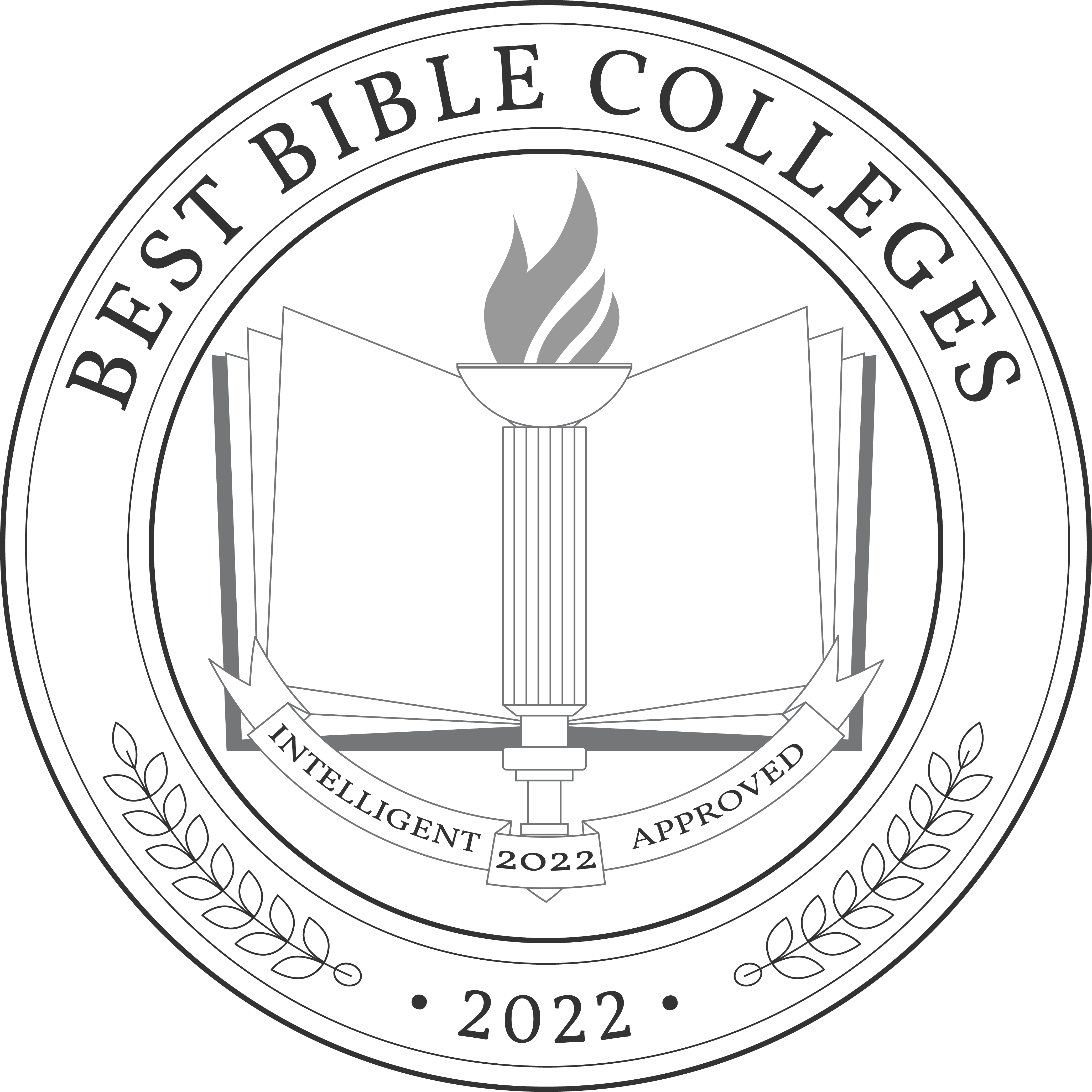Why This Matters
-
37% OF JOBS REQUIRE SOME COLLEGE EDUCATION
The number of jobs requiring postsecondary education, such as an
associate’s, bachelor’s, or master’s degree is expected to continue increasing through 2024. -
SCHOOLS OFFER MULTIPLE FAITH-BASED MAJORS
Students who attend Bible colleges can earn degrees that will prepare them for careers in various areas including education, counseling, social work, criminal justice and more.
-
DEMAND FOR CLERGY TO INCREASE 3% BY 2030
The Bureau of Labor Statistics projects the employment of clergy to grow at a rate of 3% through 2030. An additional 6,600 jobs will be available.
Our Research
For this list, we specifically focused on Bible colleges that offer online degrees at the associate’s, bachelor’s, and master’s levels. Many of the schools on this list also offer programs on-campus, or as online/in-person hybrids. Consider what works best for your learning preferences and schedule when selecting an in-person or distance-learning program. Also, your current education level and your career goals will inform what degree level you seek.
All of the schools on this list have either regional or national accreditation. Many schools are accredited by the Association for Biblical Higher Education (ABHE), which is a national accrediting body. Individual programs may have programmatic accreditation through specialized accrediting agencies as well.
We evaluated the online Bible colleges based on their faculty, cost, flexibility, course offerings, and reputation, then assigned each school an Intelligent Score on a scale of 0 to 100. Our top picks for the best online Bible colleges are affordable and highly respected.(For a more extensive explanation, check out Our Ranking Methodology.)
- 89 hours to write this article
- 201 universities and colleges we assessed
- 442 education programs we compared
The Top 59 Online Bible Colleges

Discover More Options
What You Should Know About This Degree
Bible colleges occupy a unique space in higher education as institutions that grant degrees in many subjects, but teach courses through a faith-based lens. In addition to general education and major requirements, students at Bible colleges are required to take classes in Bible study, theology, Hebrew, Greek, and the life of Christ. Christian perspectives are also interwoven into the coursework for students’ majors.
Often students who intend to pursue careers in ministry attend Bible colleges for their undergraduate degrees. Depending on your career aspirations, an associate’s or bachelor’s degree from a Bible college might be sufficient. However, some students may decide to pursue a graduate degree at a seminary, which is another type of faith-based institution that focuses on ministry leadership roles.
When considering attending an online program, you will want to confirm that the school you plan to attend is authorized to grant degrees to students who live where you do. Regulations for degree-granting online programs vary by state, so it’s in your best interest to get this information before enrolling in a program.
Lastly, be sure the schools you are researching are regionally accredited. There are many online colleges that are not accredited, or nationally accredited. This can impact your eligibility for federal financial aid, the transferability of your credits, and the value of your degree post-graduation.
What’s Next?
Here are some questions to ask when researching Online Bible Colleges programs:
- What support do online students receive? Find out how the school provides online students access to resources like libraries, tutoring, technical support, and career services. Some schools also offer support services designed specifically for distance-learning students.
- Does the program have any in-person requirements? Depending on the exact degree you are pursuing, some programs may have in-person requirements, such as internships, even if coursework is delivered fully online. Some schools may require students to attend an on-campus orientation or occasional seminars. Make sure you understand any attendance expectations before enrolling in a program, so you know you can fit them into your schedule.
During the research process, take a look at the school’s admissions requirements and deadlines. Some programs may have more stringent eligibility requirements than others. This information is usually available on the school’s website, or by contacting their admissions department.
Now is also the time to think about how you will pay for your degree. Research financial aid options including loans, grants, scholarships, and assistantships. If you are currently working, find out if your employer offers tuition assistance benefits.